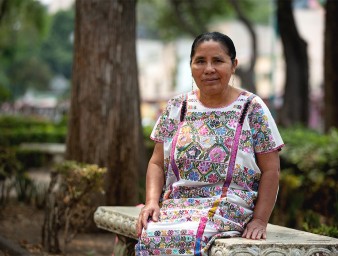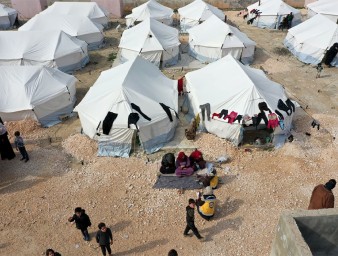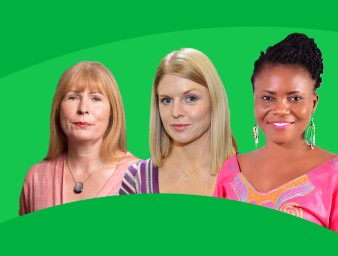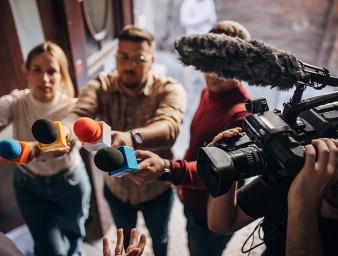Fighting hate speech and incitement to violence in the Syrian media
11 February 2020
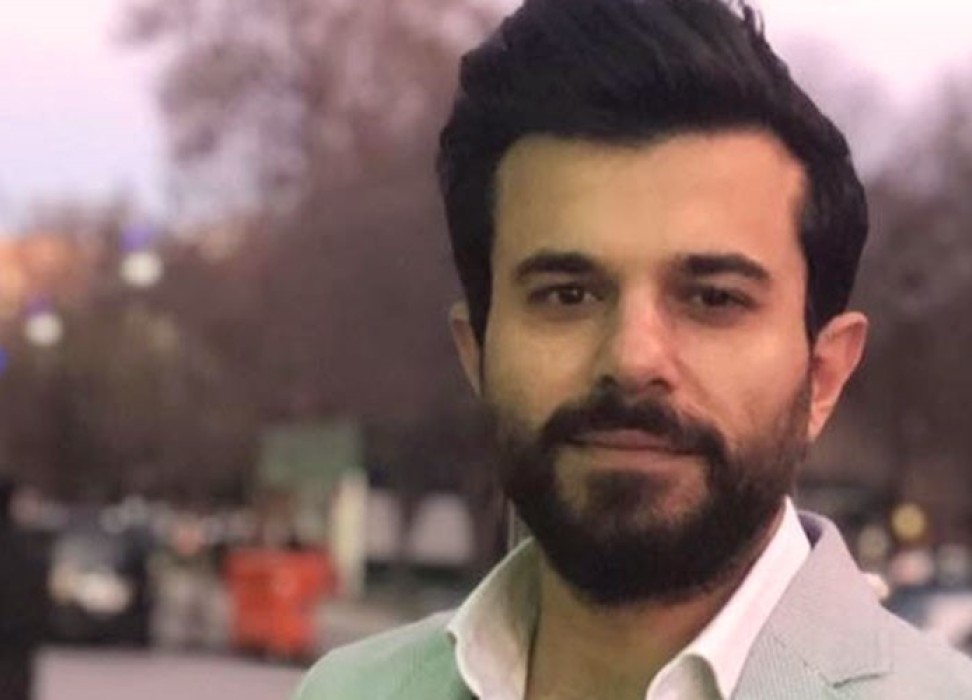
As Syria’s bloody conflict nears the end of its eighth year, and with tensions only continuing to mount, an end to the unrelenting human suffering and rights violations does not appear close. Divisions within society are being driven deeper every day, and the media plays a major role in swaying affiliations and prejudices.
According to the Syrian Centre for Media and Freedom of Expression (SCM), one in five media products - across TV, radio, print and online – contains some form of hate speech.
“Most of the Syrian population is politically affiliated, so this affects almost everyone,” explains Yayha Fares, program manager for SCM’s hate speech observatory. “The use of generalisation and stereotypes, accusations of terrorism and betrayal, it’s all over the place.”
The organisation has been monitoring hate speech directed towards various political groups and their supporters since 2017. Their ultimate objective is to decrease the presence of hate speech in the Syrian media and by consequence the human rights violations it can lead to, such as exacerbating discrimination and incitement to violence.
The SCM report, issued last year in partnership with UNESCO, found 134 idioms and terms that could be categorised as hate speech. It covers a total of 24 media outlets, 8 of whom work in government-controlled areas, 8 in opposition-controlled areas, and 8 in the Kurdish zones. All have been defined as having significant and influential reach to their respective audiences.
An analysis of the terms representing hate speech will soon be published in an online, open source glossary, for easy access for editors and writers.
From refugee to rights defender
Fares himself is a refugee, who fled Syria in 2011 “for the same reason as everyone else who left.” He now works in neigbouring Turkey for SCM and is in charge of the hate speech project. His organisation also works on media development and protection of journalists.
“We are not practising some kind of censorship. We are using monitoring as a tool to understand the reality and the details of the media narrative,” he states.
What exactly is ‘hate speech’?
While there is no international, legal definition of hate speech, the recently launched United Nations Strategy and Plan of Action on Hate Speech understands hate speech to include “any kind of communication in speech, writing or behaviour, that attacks or uses pejorative or discriminatory language with reference to a person or a group on the basis of who they are, in other words, based on their religion, ethnicity, nationality, race, colour, descent, gender or other identity factor.”
The UN Special Advisor on the Prevention of Genocide, Adama Dieng further adds that “addressing hate speech does not mean limiting or prohibiting freedom of opinion and expression. It means keeping hate speech from something more dangerous, particularly, incitement to discrimination, hostility and violence, which is prohibited in the international law.”
With an ultimate aim to identify, prevent and confront hate speech globally, the UN is working with governments, civil society and the private sector to achieve its ambitions.
Syria: “Any change in hate speech use is considered a victory”
In the case of Syria, in the last year, UN Human Rights has been working with a number of local organisations to expand and protect the civic space. A coalition of organisations have gathered for various roundtable discussions with UN Human Rights, with the most recent dialogue culminating in a collaborative campaign on Human Rights Day of 2019. The campaign addressed hate speech and stigma against the most vulnerable groups in the country, including millions of internally displaced people who face discrimination on the basis of their geographical origin or gender.
Fares has been a key contributor to these important discussions over the past year, and SCM’s work and findings, with the support of UNESCO, fed into defining and planning the campaign.
“By countering hate speech, we are not just protecting the civil peace, we are protecting the dignity of the people who are being targeted based on their ethnic, racial or political background. Othering and shaming other groups and stereotyping undermines people’s freedom. By defending these groups and by saying out loud that no-one should be excluded because of their background, we are defending their rights.”
Fares and his organisation reiterate that their work is not to name and shame media outlets, but to work together with them to achieve improved professional standards, and to build better and stronger media narratives.
“Any change in hate speech use is considered a victory,” he continues. “If hate speech or destructive narratives are avoided, levels of media professionalism will automatically increase.”
The organisation is planning to conduct another round of monitoring of the media, and is hopeful that they will soon see some positive change.
“Through this project we are trying to stitch back the social fabric that has been torn apart by the war. We hope that by influencing media outlets and their owners and managers that we can achieve something,” concludes Fares.
Disclaimer: The views, information and opinions expressed in this article are those of the persons featured in the story and do not necessarily reflect the official policy or position of the Office of the UN High Commissioner for Human Rights.
11 February 2020
